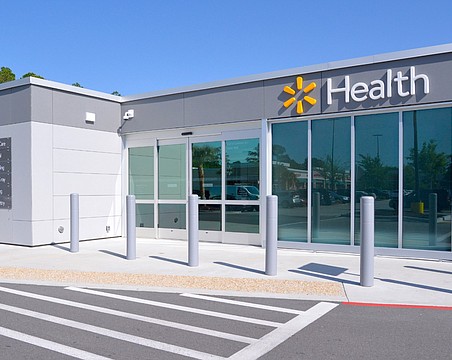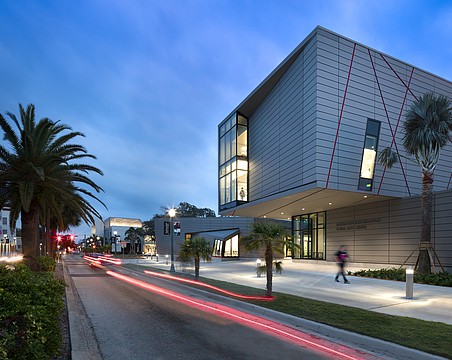MOLD Busters
STARTUPS by Janet Leiser | Senior Editor
John Jones faced heavy criticism when he hired Innovative Decon Solutions LLC to kill the mold invading Key West City Hall and making employees sick.
Doubters contended the chemical used by Innovative Decon was approved to kill athlete's foot; it'd never work on a mold-infested building. Plus, there was no way to adequately treat the building over a weekend when traditional remediation takes months and cost four times as much.
But the company's two-day $63,000 treatment did clear the main building and adjoining annex of mold, says Jones, assistant city manager of Florida's most southern city. Six months later, the air quality is still good even though the mold's causes, a leaky building and old air conditioning system, haven't been fixed since the outdated buildings will eventually be razed.
"They made a believer out of me," Jones says.
Tampa's Innovative Decon Solutions (IDS) uses a trademarked product, RemedialConC, that evolved from a patented chemical developed for the U.S. military to fight biological and chemical warfare in the Gulf War, company co-founder Terry Mebane Haynes says.
In 2003, the company had revenue of $500,000. This year, co-founder William Simms expects to bring in $3 million. Next year, he expects that number to double.
"We're profitable now," Simms says. "We've always been profitable. The first two years we didn't take any money out."
The company also recently announced a partnership with retired U.S. Army Gen. Tommy Franks.
Changing the industry
In 2000, Haynes, a nuclear pharmacist by training, was looking for a new challenge when she learned of a foam used by the military to decontaminate tanks and military equipment. A couple years earlier she'd sold her Brandon pharmaceutical company, Medical Initiatives Inc., which had $32 million in annual revenue, to a public company.
Haynes' ex-husband, a nuclear engineer, heard about "this cool pixie dust" from friends at the U.S. Department of Energy, she says.
After researching the chemical for a couple years, Haynes obtained permission from the Department of Energy and Sandia National Laboratories, a division of Lockheed Corp., to use a modified version of the chemical manufactured by Denver's Modec Inc.
In 2002, she approached Tampa native Simms, who had started and sold a few local companies, including Tower Environmental Services, which specialized in the cleanup of contaminated groundwater. The following year, Haynes and Simms formed Innovative Decon Solutions along with a third partner, longtime Gulf Coast-area car dealer Bill Currie. All three have equal ownership.
The biggest obstacle the company faces isn't finding money to pay for growth or research, Haynes says. It's convincing people in the restoration industry that the old way isn't the best way.
"We are completely changing an industry," Haynes says. "If we are successful, the traditional remediation/restoration industry is going to be totally different in five to 10 years than what it is today."
It's no longer necessary to rip out an entire room because mold is in one corner, she says, adding: "Not only does our product neutralize the mold spores, it destroys bacteria and viruses."
The fog penetrates walls to kill mold, she says. To identify damaged walls or areas for removal, IDS uses an infrared device, called a Flir, about the size of a large flashlight. It also uses cameras to look above ceilings and behind walls.
In addition to Key West City Hall, IDS has treated schools, colleges, nursing homes and other commercial buildings, including St. George's University in Grenada. Simms expects the firm to soon do work in Cancun on resorts damaged by last year's hurricanes.
Opening doors
In June, the company announced the partnership with Gen. Franks, whom Currie says he has taken fishing on his 60-foot Hatteras a few times, including once years ago with the King of Jordan and his sister.
It took Haynes and Simms months to get Franks, who was in charge of U.S. Central Command at MacDill Air Force Base, to agree to back them.
"The general knew it worked for its original development," Simms says. "We showed him it works in this application."
Franks is a business partner, Haynes says, adding, "He's not an advertisement. He has connections. He can open a door. All we ask is that we just be able to sit down with a person and talk to them."
When someone receives a call from Franks, they're likely to return it, she says, adding, "For me to call that person, they're not going to answer our calls."
With Franks, they started General Environmental Services, a sister company to IDS, Simms says.
IDS also offers a guarantee to get business: If air quality isn't within acceptable limits following treatment, there's no charge. And the company guarantees its work for 90 days.
Licensing others
Within the last month, the company began a push to license companies in other states to use its technology and chemicals. But it plans to hold onto the Florida market, where opportunities abound following hurricanes.
"We want to take the technology throughout the country and the world," Haynes says. "We knew from the beginning what we had had worldwide implications and applications. We're in a great state to start and do our legwork."
Simms doesn't plan to hire many more people than the nine employees now on the IDS payroll. He plans to primarily use subcontractors. That way he doesn't have to worry about workers' comp insurance, health benefits or any of the other headaches associated with having hundreds of employees on the payroll.
"What we'd like to do is have several hundred people who are getting wealthy working for our company," Haynes says, "but not as our actual employees."
Most business, about 75%, is from referrals from engineers and customers who've used the company, Simms says.
While Haynes wants IDS to focus on commercial projects, Simms says he expects the company's growth to also include residential business.
The company is offering emergency preparedness plans for businesses with a fixed price so that a customer, such as a grocery store or bank, receives service following a hurricane or other disaster within 24 hours.
IDS will stop the leak, if it's not too extensive, and dry and decontaminate the building. Mold starts growing within 24 to 48 hours of water exposure.
"If you have a roof over your head, we can get your buildings so they won't deteriorate any further," Simms says. "We have the ability to put 50 crews out and each crew can do a building a day."





